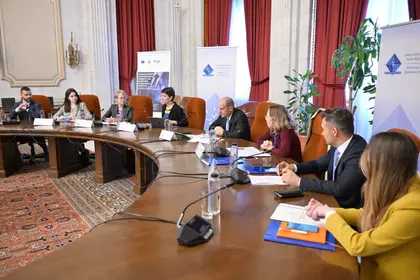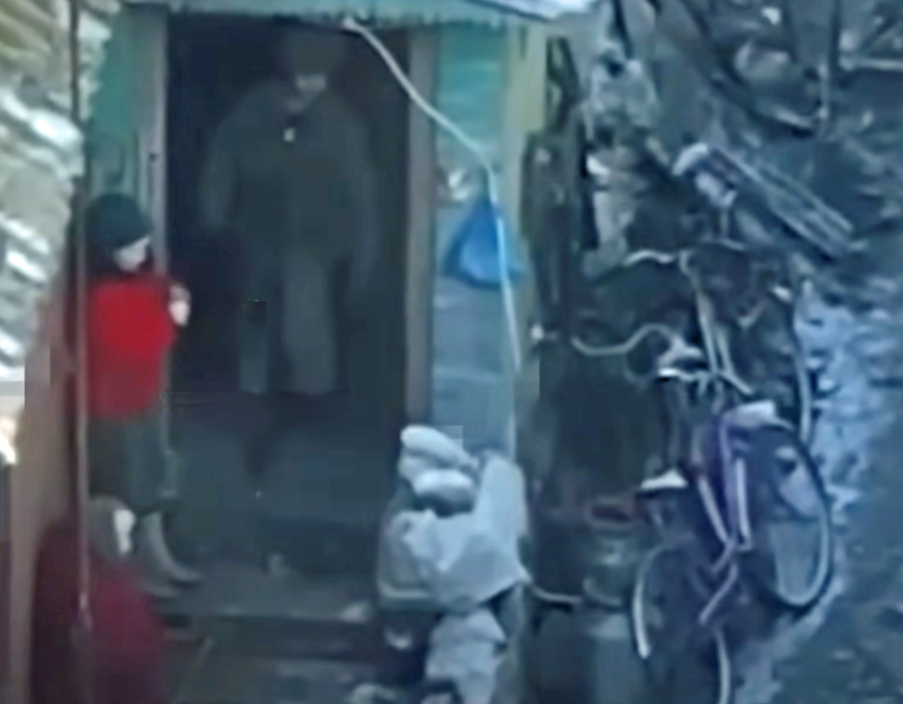I visited the capital of Romania, Bucharest, on a business trip recently. The city impressed me not only with its architecture, but also with its extraordinary hospitality.
It’s also worth mentioning how sincerely Romanian volunteers help Ukraine, and how actively they fight against Russian propaganda on the information front.
JOIN US ON TELEGRAM
Follow our coverage of the war on the @Kyivpost_official.
The discussion Black Sea Perspectives in the Age of Hybrid Aggressions and Disinformation, which was held within the auspices of the Euro-Atlantic Resilience Forum (EARF) was held in the Palace of the Parliament on Nov. 15-16.
It brought together politicians and experts to discuss the vision and perspectives of NATO, the EU, and the UN. EARF currently acts as one of the global reference conferences aimed at promoting the resilience of the entire Euro-Atlantic region and its surroundings.
A panel discussion called Democratic Values and Human Rights as Preconditions for a Resilient Society was also held on Nov. 16.
The attendees, namely Finnish Ambassador to Romania Marjut Akola, Israeli Ambassador to Romania Reuven Azar, Swedish Ambassador to Romania Therese Hydén, Vice-President of the Parliamentary Assembly of the Council of Europe Ionut Stroe, discussed how basic rights and human values of a free, developed country contribute to the formation of a resilient society. I also took part in the talk.
This conversation is important at the present time because respect for human rights is the foundation of a peaceful, successful and resilient society.
However, with the advent of social networks, which have facilitated the manipulation of information and the consequent rise of populism, fundamental rights are being denied today as never before.
Meanwhile, Ukraine for the nine months of the full-scale Russian invasion has been proving to the whole world that it is necessary to fight for one’s rights and values without being afraid of any enemy. This is the foundation of the prosperity of any state.
The main value of a person from birth is the right to life, and a person cannot be deprived of this right by anyone else.
However, not only is this right violated in wartime, but trespassing in general violates any human rights, resulting in chaos by returning people to a primitive communal system.
Whoever has a weapon is stronger and right. Sometimes, in order to preserve basic human rights, decisive actions are needed, which might somehow limit democracy but for the good.
For example, after the terrorist attacks of Sept. 11, 2001, the U.S. government decided to restrict some democratic rights and authorized special services to track and wiretap citizens, which enabled the country to step up protection of its residents in the future.
In the meantime, European politicians turned a blind eye to the Russian invasion of Georgia in 2008. There were also no decisive actions in 2010 after Polish leaders died in a plane crash near the Russian city of Smolensk.
However, a Polish court has now decided to arrest Russian flight dispatchers as it believes the plane crash was planned.
European politicians failed to respond decisively to the occupation of Crimea, the Russian invasion of eastern Ukraine and the downing of a Malaysian airliner in July 2014, which killed 298 people. The same goes for the war in Syria and the use of blackmail by involving refugees.
All the time, Europe tried to find common ground with Russia, to listen to it and discuss something with Putin – to act, so to speak, democratically. However, in fact, they played the game of the dictator who only strengthened his hand.
I am sure that the resilience of the countries of the whole world depends directly on each individual country because diplomatic, economic and trade relations between countries are widely developed in the 21st century.
With the appearance of Putin on the international arena in Europe, everything began to fall apart like a house of cards. Mutual relations between countries all over the world, their politics, geopolitics and the like began to change.
The world currently finds itself on the same threshold as it was after the Second World War, when the political system of the entire world was revised at the Potsdam Conference.
Furthermore, for all these years Putin’s policy was aimed at making Europe dependent on Russian energy so that he would be able to dictate his terms in the future.
For instance, Germany lobbied for the Nord Stream 1 gas pipeline after the Russian invasion of Georgia in 2008, and the construction of Nord Stream 2 began after the occupation of Crimea in 2014.
The priority was dependence on low prices, which gave birth to the monster which continues to wage war against Ukraine and Europe.
Neither can we forget that when certain European politicians retired, they stood in line to get a job at Russian energy Gazprom and other Russian companies.
In return, they lobbied on behalf of the interests of Russia, which was preparing on a step-by-step basis to capture Europe so as to overthrow democratic society. After all, Putin the dictator decided that Europe is dependent, so he can do whatever he wants.
That is why it is necessary to prioritize the basic rights and needs of people, namely the right to life and freedom.
This is a guarantee of the country’s development, a stable economy, etc. The spiral of inflation that is unfolding, including higher electricity prices, is provoked by the war being waged by the dictator, which violates the rights and values of a democratic society.
And if the satisfaction of basic human needs is put first, then after the victory over this dictator the issues of energy resources and prices for them will be resolved.
If we close our eyes to this now, war can be waged in any country in Europe and people there, just like in Ukrainian cities, will live without electricity, gas, water, communications, and most importantly – without freedom, without a home, and will find themselves under the constant threat of shelling.
Now we need to work on expanding energy sources – oil and gas.
This difficult winter will pass, the next one will pass, and with each new winter it will become easier because new energy resources like, for example, alternative sources of oil and gas, will appear. And Russia will not be able to dictate conditions, particularly through the use of force.
The views expressed in this article are the author’s and not necessarily those of Kyiv Post.
You can also highlight the text and press Ctrl + Enter



